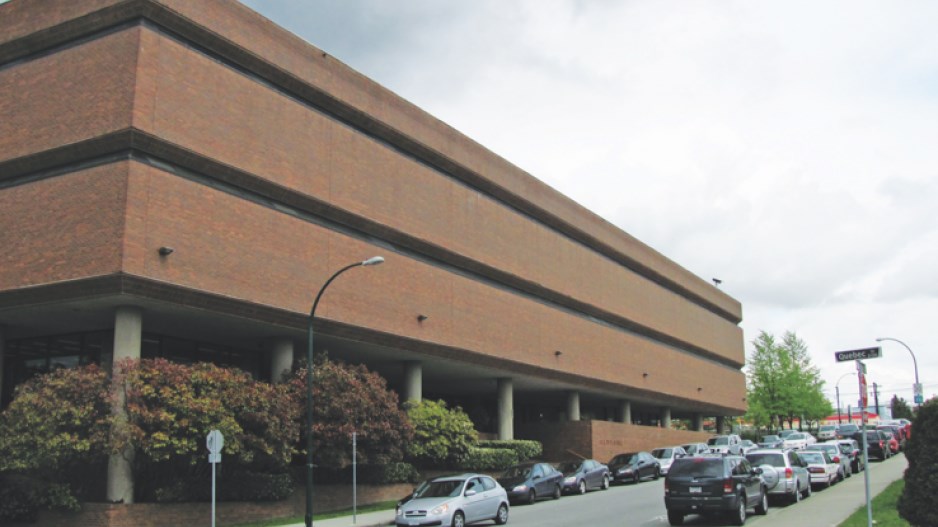Grounded
"Downtown Vancouver is facing an exodus of corporate tenants," ran the lead of a 2006 article in the Vancouver Sun relaying the findings of a CBRE Ltd. report on the cost savings to be had in suburban office markets.
While the story was roundly criticized for overstating what was going on, it has been something of a benchmark for how the industry talks about the choices facing tenants.
Panellists reviewing the region's office markets at an April 17 event, hosted by the National Association for Industrial and Office Parks (NAIOP), agreed that the suburban and downtown markets remained distinct entities.
"Ten years ago we were talking about the flight to the suburbs. Whatever happened to that flight?" asked moderator Maury Dubuque of Colliers International, turning to panellist Mark Chambers, senior vice-president with Cushman & Wakefield Ltd.
"It just never proved out," Chambers replied. "[There's] never been big enough margins."
While suburban vacancies surged in markets like Richmond, the value of a downtown address and proximity to urban amenities typically outweighed the savings to be had from leaving downtown (Catalyst Paper Corp. (Nasdaq:CYSTF), which announced seven years ago it was moving to Richmond to reduce expenses, remains a notable exception).
Similarly, suburban tenants such as Boston Pizza International Inc. haven't deemed the premium on downtown office space to be worth making the leap.
"They've looked at downtown and said it's just too good of a deal out here," Chambers said.
The need to balance the requirements of the two types of tenants underscores former Vancouver co-director of planning Larry Beasley's comment to the recent Urban Land Institute meeting in Vancouver regarding residential development.
Transit-oriented development and downtown nodes are great, he said, but those in themselves won't make a region sustainable because some people will prefer suburban developments. A healthy region needs both.
Gassed up
One of the great hopes of the Vancouver office market at the moment is the prospect of liquefied natural gas (LNG) development.
Construction of facilities along the coast for processing and shipment of the resource to Asia will result in demand for space in Vancouver to house the office staff supporting work on the ground.
Or will it?
"It's on the front edge, it's there, but will it ever be like Calgary? I don't think we're going to have an appetite for presence if we don't get our infrastructure projects off the ground," CBRE Ltd. senior vice-president Kevin Nelson told NAIOP's recent breakfast meeting.
Nelson's comments were consistent with comments made at events since last fall, as brokers have mulled the question of who is going to take space in the several towers now under construction across downtown.
While more than half the space under construction in downtown Vancouver has been preleased, hopes are faint for uptake by LNG companies.
"It's not part of our market and I'm not sure it ever will be," remarked Bart Corbett of Cushman & Wakefield Ltd. last fall in the most blunt assessment.
Meanwhile, the jury's still out on who will take space in Credit Suisse's tower at 475 Howe Street.
"Its deliverance or launch point is timed for the anticipated lease rollovers coming in 2016, 2017," Nelson said.
"They picked this window to be potentially one of the only players in time for it. I don't know why they're building that," exclaimed attendees where this writer sat. "It's crazy."
Who's suite?
Among the nuggets to be found in Colliers International's first-quarter office market report is a deal HootSuite – much in the spotlight for its arrangements at city-owned premises at 5 East 8th Avenue – has struck for 28,000 square feet at 111 East 5th Avenue.
The deal boosts its presence in Mount Pleasant, a hub for the present generation of tech companies that is also attracting new construction such as Cressey Development Corp.'s planned 73,000-square-foot project a few blocks west at 380 West 5th Avenue.
Equally important, residential developer Wall Financial Corp. has purchased two office properties in the West End – 1440 Alberni Street and 740 Nicola Street – for a total of $83.5 million.
Colliers links the move to the sites' redevelopment potential in the wake of the city's West End plan that lets the property accommodate greater density. •




